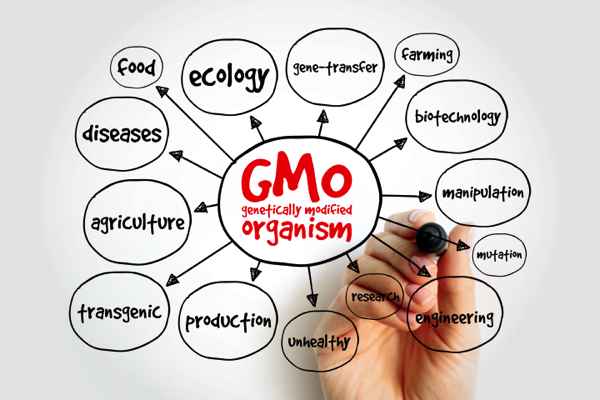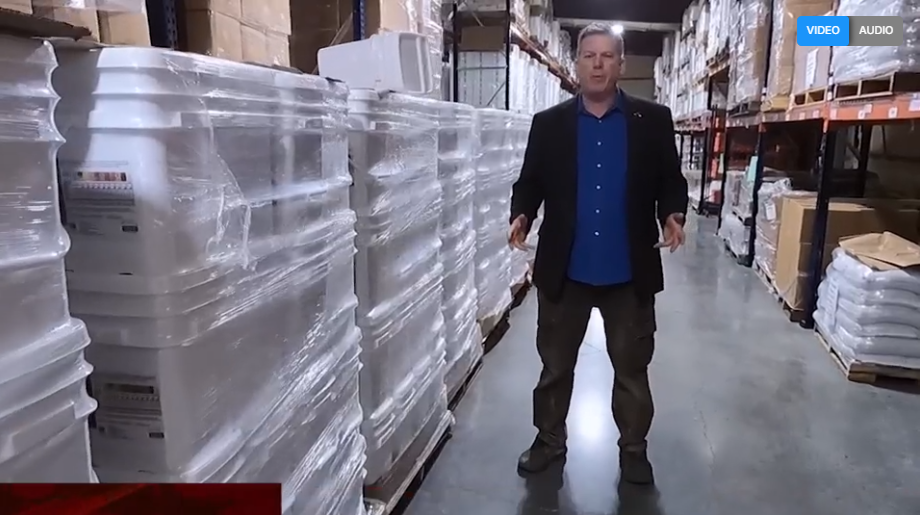Japan to introduce self-amplifying mRNA COVID-19 vaccine with a 90% adverse event rate, and the U.S. is next in line
10/10/2024 / By Lance D Johnson

Pharmaceutical companies are exploiting populations year-after-year, fine tuning the name of illnesses annually and marketing new cures that only make people sicker. Beginning this fall, Japan will introduce a self-amplifying mRNA COVID-19 vaccine as part of its vaccination program for the 2024-2025 fall and winter seasons. The vaccine, Kostaive (ARCT-154), will be available for 7,000 yen ($47) to individuals aged 65 and older, as well as those aged 60 to 64 with severe underlying health conditions. It is part of a two-dose series.
In clinical trials, a near 90 percent adverse event rate was recorded after the first dose. These adverse events were disregarded, however, as Japan approved the jab. The United States is also looking to approve these jabs in the coming years.
World’s first self-amplifying mRNA vaccine will be released in Japan
ARCT-154 became the world’s first self-amplifying mRNA COVID-19 vaccine after receiving approval from Japan’s Ministry of Health, Labour, and Welfare in November 2023. It was developed by biotechnology firm CSL in collaboration with Arcturus Therapeutics.
Unlike mRNA vaccines — which only produce the spike protein necessary for immune response as long as the mRNA persists — saRNA vaccines are engineered to create copies of themselves and the proteins they encode. This “biological printing press” could theoretically amplify the vaccine’s presence and multiply its effects within the body indefinitely.
According to CSL, the vaccine demonstrated higher immunogenicity and a favorable safety profile compared to original mRNA vaccines during clinical trials. However, independent vaccine researchers are voicing serious concerns regarding the safety and efficacy of this untested technology.
Dr. Nicolas Hulscher stated, “These products are completely new. There is absolutely no long-term safety data on them.” In trials for ARCT-154, he noted a near 90 percent adverse event rate after the first dose, with clinicians observing significant systemic reactions in participants. Serious and medically-attended adverse events were only recorded from Day 1 to Day 92.
Karina Acevedo Whitehouse, a microbiology professor, emphasized the lack of comprehensive studies on the long-term effects of self-amplifying mRNA technology. She pointed out that there are no assessments of potential cellular transformations, including the risks of cancerous mutations or inflammatory responses. “We simply do not know what the consequences could be,” she warned.
“There have also been no studies conducted on trans-generational effects — for instance, teratogenicity [birth defects] — of self-amplifying mRNA injections,” she said. “We simply do not know what the consequences could be.”
Further raising concerns, a Cambridge University study revealed that original mRNA vaccines could trigger unintended immune responses in a third of recipients, leading to possible autoimmune reactions. Whitehouse linked the increase in certain cancers observed since 2021 to the effects of mRNA technology on cellular pathways.
Self-amplifying mRNA vaccines, which include an enzyme that allows for the replication of the injected mRNA, may pose even greater risks than the original mRNA vaccines. Experts suggest that the sustained antigen production could lead to heightened risks, making these new vaccines akin to “conventional mRNA injections on steroids,” as Hulscher described.
U.S. considers using self-amplifying mRNA vaccines, which are really runaway bioweapons
The United States is planning to use these new vaccines. The Biden regime has already partnered with several companies to develop self-amplifying mRNA vaccines for future plandemics. In other words, companies are conspiring to create a line of self-amplifying vaccines so they can profit from future virus constructs and subsequent pandemic messaging and vaccine marketing campaigns. CastleVax, Codagenix and Gritstone Bio have already received contracts from the Department of Health and Human Services under the federal government’s Project NextGen.
Project NextGen claims to accelerate and streamline the rapid development of the next generation of vaccines and treatments by spearheading public-private collaborations. In September of 2023, Gritstone Bio locked in a $433 million contract to simply “conduct a mid-stage study of its self -amplifying mRNA COVID-19 vaccine candidate,” so there have been products in development for some time. Gritstone Bio has previously received funding from the Bill and Melinda Gates Foundation, which seeks to capitalize on their vaccine investments. Gritstone Bio’s partners also include BlackRock and State Street, official partners of the World Economic Forum. These bioweapon investments are too-big-to-fail, and the courts are not holding vaccine manufacturers accountable for harming millions, so it’s likely that saRNA vaccines will be coming to the U.S. soon.
Sources include:
Submit a correction >>
Tagged Under:
adverse events, autoimmune conditions, Bill Gates Foundation, bioweapons, Birth defects, BlackRock, Censored Science, Gritstone Bio, inflammation, Japan, pandemic messaging, pandemic planning, Project NextGen, propaganda, saRNA vaccines, State Street, transgenerational effects, vaccine safety, vaccine wars, vaccines, virus constructs, wef
This article may contain statements that reflect the opinion of the author




















